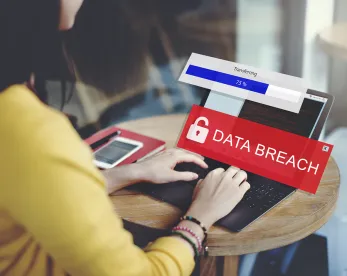In recent years, there has been an uptick of W-2 phishing scams, and their consequences for an employer extend well beyond leaked data, including potential employee class action litigation. Just last week, a federal court in Illinois rejected a motion for class certification in a data breach case alleging disclosure of employees’ sensitive tax information and additional personal information, in McGlenn v. Driveline Retail Merch.
A W-2 phishing scam, is a simple cyberattack, but can be highly successful. It consists of a phishing e-mail sent to an employee, generally in the Human Resources or Accounting department, and designed to appear to come from an executive within the organization. The e-mail requests that the recipient forward the company’s W-2 forms, or related data, to the sender. This request aligns with the job responsibilities of both parties to the email. Despite appearances, the e-mail is a fraud. The scammer is “spoofing” the executive’s identity. The recipient relies on the accuracy of the sender’s e-mail address, coupled with the sender’s job title and responsibilities, and forwards the confidential W-2 information.
In McGlenn v. Driveline Retail Merch., an unknown person sent a phishing email to a Driveline employee in the payroll department. The email falsely identified the sender as the company’s Chief Financial Officer (CFO), and requested the employee send a copy of W-2 information for all Driveline employees. According to the allegations, the employee provided the unknown person with W-2 information for nearly 16,000 employees including names, addresses, Social Security Numbers, and other personal identifying information (PII).
The plaintiff filed a putative class action against her employer, on behalf of other employees of the company, asserting several torts and state consumer protection violations. The plaintiff claimed as a result of the data breach the class suffered damages due to: unauthorized use and misuse of their PII; the loss of opportunity to control how their PII is used; the diminution in value of their PII, the compromise/publication/theft of their PII; out of pocket costs associated with prevention, detection, recovery and remediation from identity theft or fraud; lost opportunity costs and wages associated with efforts expended and loss of productivity attempting to mitigate consequence of the breach; the “imminent and certain” impending injury flowing from potential fraud/theft; continued risk to their PII and more.
Standing in data breach class action litigation is a highly contested issue, as courts differ on whether a data breach victim must suffer actual financial harm to recover damages, or the mere threat of future harm is enough. Federal circuit courts over the past few years have struggled with this issue, in large part due to lack of clarity following the U.S. Supreme Court’s decision in Spokeo, Inc. v. Robins which held that even if a statute has been violated, plaintiffs must demonstrate that an “injury-in-fact” has occurred that is both concrete and particularized, but which failed to clarify whether a “risk of future harm” qualifies as such an injury. For example, the 3rd, 6th, 7th, 9th and D.C. circuits have generally found standing, while the 1st, 2nd, 4th and 8th circuits have generally found no standing where a plaintiff only alleges a heightened “risk of future harm”.
Here, in McGlenn, the court denied class certification for several independent reasons, among which, the court emphasized doubts of whether the class suffered an injury that was compensable. Moreover, the court was unsure whether the employer (Driveline) even owed the potential class members a duty to protect their PII, as Illinois does not have a common law duty for employers to safeguard employee PI.
While such a holding is considered a win for employers, it still is an indication of how far the consequences of a phishing scam can extend. Even a case dismissed at an early stage will result in significant time and legal fees for the employer, not to mention damaging employee relations. Also, the result might have been different in another state, such as California. Under the California Consumer Privacy Act, California residents have a private right of action when their personal information is involved in a data breach due to the business’s failure to maintain reasonable safeguards. If successful, plaintiffs could each recover between $100 and $750, or actual damages whichever is greater.
An organization can use firewalls, web filters, malware scans or other security software to hinder phishing scams, however experts agree the best defense is employee awareness. This includes ongoing security awareness training for all levels of employees, simulated phishing exercises, internal procedures for verifying transfers of sensitive information, and reduced posting of personal information on-line.




 />i
/>i

